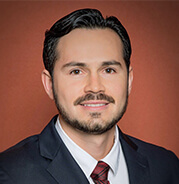About SWIT

- Why was the SWIT Research Group formed?
The origin of SWIT Research Group can be traced back to August 2007. It began with a small group of researchers whose purpose was that of designing a model of wealth (W) creation for emerging countries supported by innovation and technology (IT). This purpose was translated into a research line that defined the first steps of SWIT.
In August 2011, the Research Group’s objective evolved and focused on solving one of the most significant problems of our times: The social and environmental imbalance in developing and emerging economies, generated by the disproportionate growth and the industrialization caused by developed regions, due to their globalization strategies.
- The Mission and Purpose of SWIT Research Group
We develop frameworks, methodologies, tools, and training programs that are based on disruptive innovation, sustainability, circular economy, and a systemic approach, recognizing and addressing the relevance of context.
We promote these frameworks, methodologies, tools, and training programs for the transition to a sustainable economy in emerging economies where social conditions are unfavorable for the application of conventional models.
Our purpose is to enable the creation of sustainable wealth, socially equitable and inclusive, democratic, and capable of regenerating regional natural resources.
- What SWIT Research Group is
The SWIT Research Group is a Think Tank, designed to engage experts on sustainability, technology, innovation strategies, and industrial engineering, focused on producing viable frameworks, methodologies, and practices to solve relevant problems to firms, industries, and society.
The SWIT Research Group is also a Do Tank, designed to create optimal conditions, managing the allocation of appropriate resources, and the articulation of intelligent and inclusive synergies among stakeholders and institutions, all of this under a holistic management and an effective governance of the agents that constitute clusters of industrial ecology systems, with a far-reaching objective, to create sustainable increasing returns and a prosperous regional growth.

The SWIT is a framework designed to:
- Generate "sustainable prosperity" for industries and communities from developing countries. It seeks to articulate harmonically the three large systems of the biosphere ecosystem: the economic, the social, and the environmental dimensions.
- Create a new individual and collective "conscience" that permanently seeks harmony between economic growth, social development, and natural resources recovery.
- Create a regenerative, viable, and equitable "alternative wealth", resulting from developing circular value systems that are inserted into a region through the transition to self-managed sustainable communities.
- Spread the "disruptive, innovative, systemic, and circular" paradigm to create sustainable and shared wealth. That breaks with the conventional linear, analytical, and wealth concentration model of conventional economic growth and follows the new world reality, mainly in developing countries.
- Train "leaders with a systemic approach", capable of managing and promoting creativity, systemic innovation, and the generation of sustainable capital systems.
- Train researchers, practitioners, and "entrepreneurs" with theoretical bases and robust and well-founded concepts, capable of generating practices and undertaking new circular and systemic economic regional growth.

SWIT and the SDGs
The work of SWIT Research Group is aligned to several Sustainable Development Goals (SDG) of the United Nations. Specifically, the work of the group is aligned to SDG 8, Decent Work and Economic Growth; SDG 9, Industry, Innovation, and Infrastructure; SDG 10 Reduced Inequalities; SDG 11, Resilient and Sustainable Cities and SDG 12, Responsible Consumption and Production.
SDG 8: SWIT Research Group’s work is aligned to the promotion of sustainable economic growth (SDG 8) through the offering of a robust framework, tools and methodologies for the development of entrepreneurship of non-usual businesses, mainly for communities of the base of the pyramid in developing countries. As a result of this entrepreneurial activity, new jobs are created to support the new generation of startups that are based on extended circular value systems. These novel businesses may be key for the sustainable recovery in the post-pandemic era.
SDG 9: The advances of SWIT Research Group helps “build resilient infrastructure” at the same time that fosters innovation and promotes “inclusive and sustainable industrialization” of developing regions, SDG 9. The group does this by decoupling economic growth from the degradation of natural resources, waste and residues production using a circular mechanism of transforming waste into wealth.
SDG 10: SWIT Research Group’s work is associated to the reduction of “inequality within and among countries” through the application of its frameworks, tools and methodology in inclusive, collaborative entrepreneurship and regional programs that align resulting benefits with a prosperous social development. The generation of sustainable wealth enabled by the work of the group directly aims to reduce the increasing social gap (SDG 10), quite usual in developing countries.
SDG 11: One of the applications of the frameworks, methodologies and tools developed by the SWIT Research Group, as it has been and continues to be the transformation of conventional linear cities into circular cities and communities to promote sustainability and resilience as SDG 11 states.
SDG 12: In line with the SDG 12 Responsible Consumption and Production, the SWIT focuses on providing methodologies and enabling conditions for developing countries to create circular value systems able to reduce waste generation by an efficient use of natural resources and interlinking local stakeholders (i.e. natural ecosystem, communities, industry, government).
Active SWIT Group Members

Leader of SWIT, Professor Emeritus, Tecnologico de Monterrey, EGADE Business School, Monterrey, Mexico

National Director Master in Business Management, Professor and Researcher, EGADE Business School, Monterrey

Director of the Conscious Enterprise Center for a Sustainable Future, Professor and Researcher, EGADE Business School, Mexico City

Ph.D. Student, research in the field of Industrial Systems and Zero Residues

Ph.D. Student, research in the field of Circular Value Systems

Ph.D. Student, research in the field of Circular and Resilient Cities
- David Pérez
Ph.D. Student, EGADE Santa Fe - Víctor Inzunza
Ph.D. Student, EGADE, Monterrey
- Víctor Melgarejo
Entrepreneurship and Enterprise Incubation program - Fernanda Garza
Entrepreneurship and Enterprise Incubation program
External Collaborators
- Leonardo Pineda
PhD Associate, Colombia - Miguel Angel Pulido
Associate, Colombia - Alfonso Barragan
Associate, Mexico
- Consuelo Garcia de la Torre
Associate, Mexico - Daniel Bretones
PhD, Associate, France - Lourdes Dieck
Associate, Mexico
- Emmanuel Raufflet
PhD, Associate, Canada - Jaime Camara
Associate, Mexico